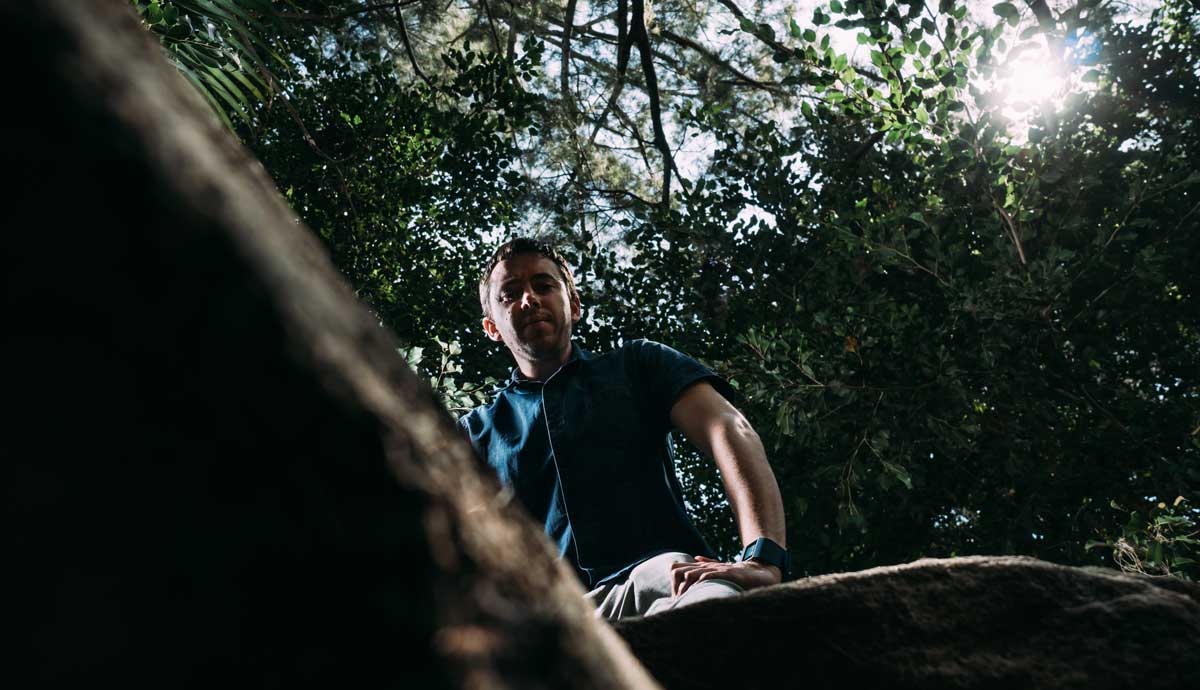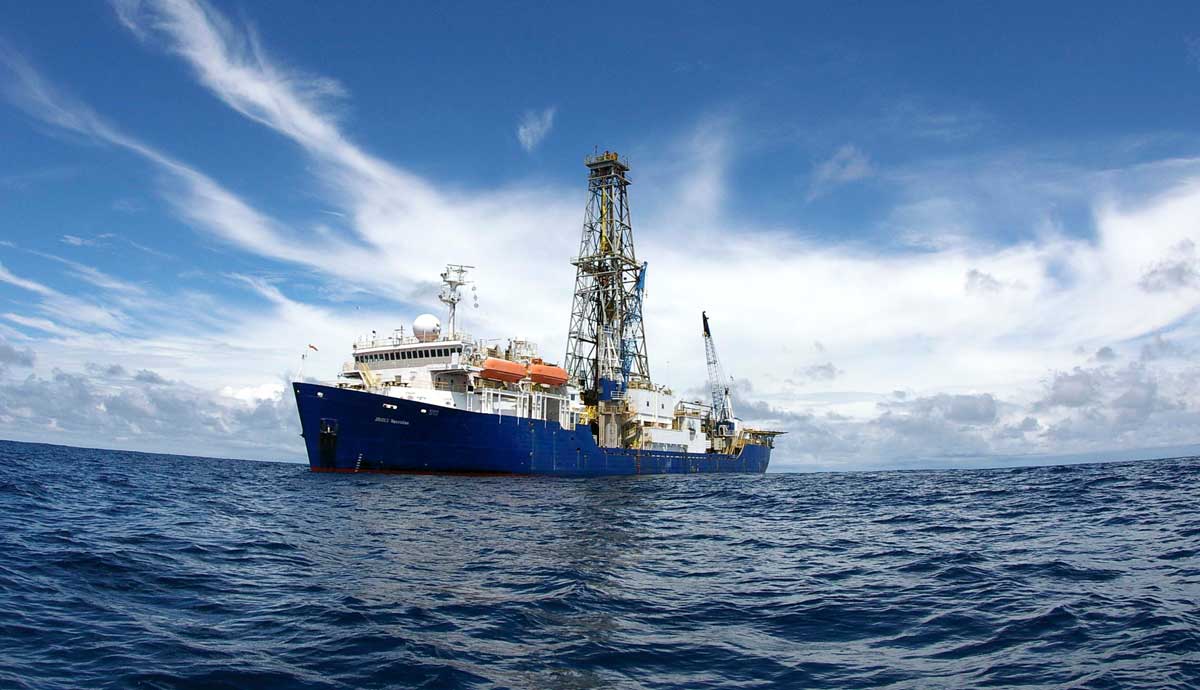September 27, 2017
Voyage of exploration into Australia’s deep past
UOW Geologist to join international team of scientists on expedition from Hobart to Fremantle.
Geologist Dr Lloyd White will join an international team of scientists on board the research vessel JOIDES Resolution as it embarks on a voyage of discovery, sailing from Hobart to Fremantle from September 26 to November 26.
The University of Wollongong (UOW) lecturer will be one of about 40 scientists from all parts of the world and representing many different specialisations on board the ship as it makes its way around the southern coastline of Australia, stopping at several target locations to drill down into the rock bed under the ocean.
“We will be sailing between Hobart and Fremantle, and coring four sites into parts of the ocean floor to learn more about the Earth’s climate in the Cretaceous period (66 - 144 million years ago) and to learn more about the history of the supercontinent Gondwana as it began to separate into different continents (Australia, Antarctica and India),” Dr White said.
RV JOIDES Resolution is operated as part of the International Ocean Discovery Program (IODP), an international marine research collaboration.
Named for Captain James Cook’s ship HMS Resolution (JOIDES stands for Joint Oceanographic Institutions for Deep Earth Sampling), the ship drills core samples and collects measurements from under the ocean floor, giving scientists a glimpse into Earth’s development.
It travels all around the world on its research expeditions and has spent most of the past two years in Australian, New Zealand and Antarctic waters – boosted by funding support from the Australian and New Zealand Governments.
This particular expedition is being led by Dr Brian Huber of the Smithsonian Institution in the USA and Professor Richard Hobbs from Durham University in the UK.

While Dr White, from UOW’s School of Earth and Environmental Sciences, mainly does land-based geology he jumped at the chance to take part in this voyage.
His main research interests are in understanding plate tectonics, particularly how plates break apart as well as how mountains form at the edges of tectonic plates.
“I'm hoping we core through layers of sandstone (much like we see around the Illawarra Escarpment and across the Sydney Basin).
"My aim is to use the laboratories on the boat as well as at UOW, Geoscience Australia and other universities to learn more about whether the sediment was transported from Australia, Antarctica or India – as well as these sediment sources may have been cut-off as the plates drifted apart,” Dr White said.
“We’ll consist of two teams working in 12 hour shifts for two months in a round-the-clock operation. We’ll be out in the Great Australian Bight as well as the Naturaliste Plateau drilling down at a number of predetermined sites.
"We will be a few hundred kilometres from the coast - not close enough to be able to see the coast, but we won't be out in the middle of the ocean between Australia and Antarctica.
“We will be drilling in water depths between 800–4000 metres – we’re then drilling for about another kilometre or so into the seafloor at each location.”
Dr White’s work has taken him to some interesting parts of the world, from the European Alps to the Indian Himalaya and the jungles of West Papua, but this expedition will be a new experience for him.
Dr White admitted that he’s not looking forward to all aspects of it.
“I've lived at sea for a month or so before, but only in the nice gentle seas of parts of Indonesia, the Southern Ocean is going to be a whole lot different,” he said.
“One of the main challenges with this trip is the rough seas in the Southern Ocean and hoping the weather will be kind so drilling to collect our cores is not too difficult.
“I made sure to stock-up on anti-nausea tablets and a horde of ginger.”
- To follow the Joides Resolution on its voyage across Southern Australia, and to learn more about what the scientists on-board are up to please keep an eye on joidesresolution.org or follow on social media via #EXP369.
